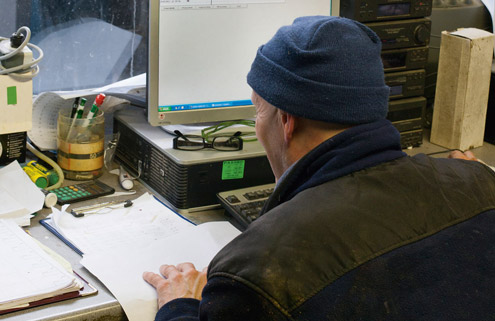Top operators in New Zealand show the way to profit?

Increasing world population and affluence is driving up demand for dairy products. The key question for UK producers is “Does our milk buyer/processor want to be part of it and do we?”
Butter, cheese and milk powder prices have all hardened in the past six to nine months, which is helping to get a high milk price in the UK. Meanwhile, due to a drought in New Zealand their milk supply has dropped significantly, which has further boosted prices and means milk for powder is currently generating more than 35p a litre.
The first good news from New Zealand is that they foresee strong market demand for dairy products for at least the next five to 10 years. In turn this should keep demand and prices strong in the UK and indeed could present opportunities for growth if we want to take it and the dairy processor has the vision and appetite for exports.
A recent study tour to New Zealand was made by 15 go-ahead positive dairy farmers from the UK. Strangely enough at the same time, due to the current high prices paid in New Zealand, a group of their dairy farmers were over in the UK looking at how to spend money on keeping cows indoors. What a funny world.
Lessons to be learned from top operators in New Zealand to influence UK profits included:
1. “Have a joined-up industry” from research, through to our on farm production and on to the marketplace almost all the dairy farmers are linked together with a common goal to optimise profit and minimise share holder benefits beyond the dairy farmer.
2. “All production systems are categorised” – according to the percentage of time the cows stay on the holding in a year and how much home-grown grass and other forage costs are in their annual diet.
This means farmers can identify the most profitable milk production system that suits their holding and can see how they compare and how they can improve? It is a great environment to learn.
3. “Everyone is positive about dairy farming” – because they know how dairy profits can make a positive contribution and it provides a great way of life.
4. “Sheep and hill farms are converted to dairying” – providing greater returns than other livestock sections with simple production systems that employ low amounts of capital per litre sold.
5. “More cows than people in New Zealand” – greater retained profits than the UK dairy farmer due to low replacement rates, minimal winter milk productions and vibrant young farmers who enter the industry as a business rather than the “obligation” of following on from the current generation as is often the case in the UK.
6. “Clear personal and financial goals” – these are encouraged and prepared by many dairy farmers that have built up considerable wealth. These goals are then quantified so that achievements can be measured. Key milestones of achievements are also established to achieve the goals.
Too often in the UK when people are asked how much profit they either need or want to make, the answer is – “As much as possible” – well what happens if this is not enough?
7. “Bank managers are business developers” – they actually lend 100% money for cows with only the cow as security. They profit from lending to successful growing businesses.
In the UK we have lost or are losing quality agricultural managers and these are at risk of being replaced by “debt to asset ratio’s” and insurance policies to cover failure.
8 “More grazed grass in a diet increases farm profits” – one more piece of research after another continues to show this and farmers profit from this advice. They do not have to fight the vet, the semen salesman, the nutritionist or father as has to happen in the UK.
9. “Rear quality heifer replacements” – the importance of well-grown heifers to calve at two years or slightly less was very evident and if for any reason these animals were a little too light in their first lactation they would be milked once a day to allow them to grow more and get back in-calf.
Summary of key points
- Mix only and work with positive thinkers.
- Encourage a more joined up industry that can profit from world growth in dairy products.
- Establish positive and rewarding goals and run a dairy business that achieves it.
- Optimise the % of grazed grass in the diet of the dairy cow – no matter the calving pattern or production system.
- Value your capital employed and keep your profit in your pocket unless spent wisely on land and livestock – not rust.
- Be positive and talk positive of our Dairy industry and motivate and excite the next generation – remember they are your pension and they are the future for whom you must invest.
Subscribe to receive your free digital edition of Dairy Update
